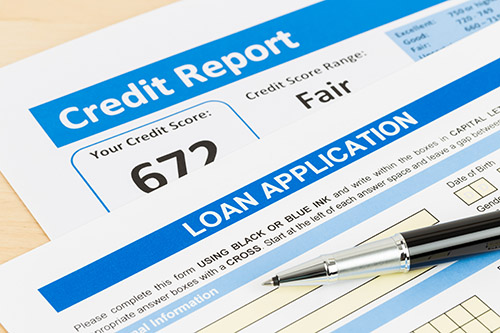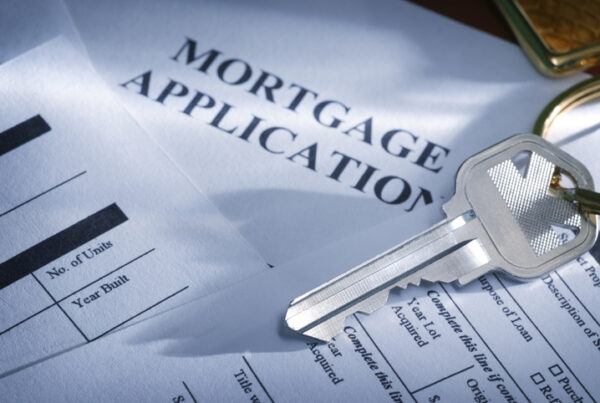Debt consolidation seems like a simple concept. Consolidate your debts from many accounts into a single account. But, it’s not always that simple. There are actually multiple different ways to consolidate your debt. This page will help you discover those ways and decide which one may be best for you.
What is Debt Consolidation?
Debt consolidation is the process of combining multiple debt balances into one single debt account. This commonly refers to a personal finance process of individuals addressing high personal debt.
What are the Two Types of Debt Consolidation and How do they Work?
1. Debt Account Consolidation
2. Debt Payment Consolidation
Debt Account Consolidation
To consolidate multiple debt balances into a single debt account, the consumer must both find and qualify for a product – such as a credit card balance transfer offer (CCX), a debt consolidation loan (DCL), a home equity loan (HEL) or a home equity line of credit (HELOC) – that will pay off all other accounts with debt balances simultaneously transferring them to the new account.
While the promise of simplified monthly payments and a single balance is attractive, the process is anything but guaranteed. Even if you receive a CCX or DCL offer in the mail with terms like, “pre-approved” or “simple” stamped all over the application, there is no guarantee the process will work for you.

The problem with such a denial is that if you were counting on the consolidation to be approved and decided not to send in any payments due on the old accounts, you may be slapped with late fees and over-limit fees if the new credit card company or lender does not pay off the debts before their payment due dates.
Additionally, if you ask the new credit card company or lender to pay your current debts but you underestimate the balances to be paid off, you may still have debt balances accruing on those old account going forward.
Home equity loans and lines of credit (HELs and HELOCs) have some of the same challenges as CCX and DCL options. First of all, you must own a home whose value is typically at least 20% higher than the current balance of the mortgage. Otherwise, you may struggle to find a lender willing to approve your application. Additionally, if the HEL or HELOC does not pay your current debts off in full, you will be required to continue making payments to your old debts until they are paid in full.
Finally, each of these options (CCX, HEL and HELOC) typically require you to pay transfer, application or processing fees. In the case of credit card balance transfers, it is common to pay 5% of the amount of debts transferred as a fee. For every $1,000 transferred, the fee is $50, so a transfer of $5,000 will equate to $250.
With all of these challenges, the biggest problem is the fact shown by surveys and studies that more than half of all consumers who use a CCX, DCL, HEL or HELOC to pay off credit card debts will run those same credit cards back up to their previous balances within just one or two years. This happens because balance transfers are treating the symptoms, not the problems of the debt. In fact, they are not debt elimination strategies at all but simply debt shuffles.
Debt Payment Consolidation
Most of the remainder of this post will address the second type of debt consolidation: debt payment consolidation. To consolidate our payment, you work with a third party, nonprofit consumer credit counseling agency (CCA) that works with your current creditors to lower your interest rates and fees while requiring just one monthly payment. The CCA then quickly disperses your monthly payment to each of your current creditors. There is no transfer of debt but only a lowering of your interest rates which, in turn, means more of your monthly payment goes toward your debt elimination.
The CCA has already negotiated reduced interest rates with all major creditors and most regional and local lenders in order to assist you in repaying your debt sooner than you would be able to on your own. These incentives often extend into stopping late and over-limit fees and even lowering the required monthly payments.
How Does Debt Consolidation Affect My Credit Score?
Depending upon the type of debt consolidation you pursue and your credit-related activities during and after consolidation, you might see no change in your credit, a drop in your rating or an eventual positive bump.
For example, should you decide to move forward with a debt balance transfer (CCX, DCL, HEL or HELOC) but continue to use your current credit cards, you might find an almost immediate drop in your credit score because you will have a larger amount of debt after the consolidation than before.

Working with a credit counseling agency to set up a debt management plan (DMP) may have little to no initial credit rating effect with a significant improvement over time. The credit scoring pioneer, FICO, notes that participation in a credit counseling DMP is not a factor in your credit score.
That said, accounts placed on a debt management plan are closed for further use. If these are credit card accounts that are already maxed out, closing them may have no effect whatsoever on your rating. If they are not maxed out, there might be an initial decrease in your credit score, which would typically increase over time, though, as you pay the balances down.
The bottom line regarding how debt consolidation affects a credit score ultimately depends on what type of consolidation program you work with and, most importantly, whether you make progress with reducing the total balances of your outstanding debt. Credit scores tend to improve significantly as overall balances drop.
Is it a Good Idea to Consolidate Debt?
Whether consolidating your debt is a good idea or not depends mostly on what you do with your debts post-consolidation.
- Can debt consolidation help you accelerate your debt elimination? Of course!
- Can debt consolidation simplify your monthly debt payments? Absolutely!
- Does debt consolidation guarantee success in eliminating your debt? Certainly not!
If you still have an excellent credit rating (you have continued to make your debt payments on time and kept your account balances low relative to their limits or to their original balances), you may be able to qualify for a consolidation loan or a credit card balance transfer offer, with minimal fees and a decent interest rate. In such cases, consolidating your debt will be a good idea because you will be paying less interest and fewer fees while having just one monthly payment to worry about.
If your credit rating has been negatively affected by your debts, applying and being denied for a consolidation loan (CCX, DCL, HEL or HELOC) may actually hurt your credit rating, leading to higher default interest rates and more interest paid over time. If you miss a payment during the process, you may even see an account sent to collections.
On the other hand, if you struggle affording your monthly payments, working with a debt management program by a nonprofit credit counseling agency can provide you enough room to afford your monthly bills and accelerate your debt elimination plan. Keep in mind, though, that there will likely be some fees associated with a DMP.
How Much Does it Cost to Consolidate Your Debt?
Credit counseling agencies, even though they are nonprofit, typically require you to pay minimal, capped fees to participate in their debt management programs. With staff and bills of their own to pay, nonprofit credit counseling agencies are guided by federal legal code – 501(q) – in their funding sources and amounts of funding. Most states also cap these fees.

Additionally, CCAs use revenue from monthly administrative fees to continue managing your debt consolidation program. Like the enrollment fees, these monthly fees are heavily regulated by states. Fees are typically calculated as a percentage (e.g. 15%) of your monthly payment to creditors and are capped at $75 or less (more than half of states) This means that if your monthly debt payment is in the $200 range (e.g. $10,000 or so of total debt), your monthly fee will likely be just $30.
Some states cap this fee at $20 or $30, though the average monthly fee is between $60 and $70, even if you are repaying $30,000 or $100,000 of debt.
Can I Consolidate All My Debt Into One Single Payment?
Through a debt management plan with a credit counseling agency (CCA), all your unsecured debt payments can be consolidated into one monthly payment. Most CCAs encourage their clients to sign up for an auto-withdrawal from their checking account to make the process even more convenient. This option also increases the client’s likelihood of successfully repaying 100% of their debts on the program.
Debt payments to consider consolidating through a CCA include credit cards, collection accounts, medical and hospital bills, old cell phone or utility bills, payday loans, signature loans, repossession debt, and even past due student loans, child support and back taxes.
Who Qualifies for Debt Consolidation?
Unlike the sketchy late-night advertisements promoting settlements requiring $10,000 of debt or more, debt consolidation through a nonprofit CCA has no minimum or maximum balance requirements. While each creditor has its own specific guidelines for offering account concessions (lower interest rates, waived late fees, etc.), consolidation itself has no such limitations.
However, the fact that you are looking for help to simplify your monthly payments and likely feeling overwhelmed by your various debts is a good indication that you are a candidate for creditor concessions. Here are a few common scenarios of debt consolidation clients:
Jim is employed full-time and makes a good income. However, a combination of bills from a medical emergency a few months ago and residual credit card debt from his last family vacation have mounted to $18,000 and are squeezing his budget. Through a DMP, Jim’s credit card interest rates are reduced to 5% APR or less and he is on track to be debt free in 3 years. If he gets his usual end-of-year bonus from work, he may even accelerate his debt freedom day to just 18 months from now.
Sherice has been receiving social security disability benefits each month for the past five years. When her refrigerator died several months ago, she took out a $450 payday loan since she assumed no bank or credit union would approve her without much income. Unfortunately, she has not been able to repay the payday loan, which is due in full next week. She is worried that missing her next payment will lead to penalty fees she will not be able to afford. Through a DMP, Sherice is able to set up affordable monthly payments that will have the payday loan paid off in full in just four months.
Franco and Maria both lost their employment last year when the business where they worked (and where they had met and fallen in love) folded. They got behind on their cell phones, utilities and even went through a car repossession. Now, they are both employed again but struggling to afford their current bills and the payments requested by their old utility company and the vehicle repossession creditor. Through a DMP, their monthly payments are reasonable, giving them the opportunity to pay them off in just 18 months while also leaving enough room in their budget to put a little money each month into an emergency savings fund.
Can I Use My Credit Card After Debt Consolidation?
Yes and no. Technically, the ability to use a credit card that has been consolidated depends on what type of consolidation plan you choose. If you have decided to consolidate your debt with a loan or credit card balance transfer, the terms do not require your credit card to be closed. Consequently, you might still use your open credit cards.

Credit cards that are enrolled in a debt consolidation program with a nonprofit credit counseling agency are closed once the payment plan is accepted by the creditors. Since complete debt elimination is the ultimate goal, accounts are closed to further charging in order to ensure that the enrollee can pay down his or her balances. This helps you pay your debt in a reasonable amount of time in order to provide you a fresh start.
Can You Buy a House While in Debt Consolidation?
The Federal Housing Administration provides mortgage insurance on loans made by FHA-approved lenders around the US. These loans include mortgages on single family homes, multifamily properties, and more. As one of the largest insurers of mortgages in the world, its lending and underwriting standards and recommendations are among the most commonly accepted among lenders. FHA’s 2020 “Single Family Housing Policy Handbook” section 4000.1.a.ii.(J) states, “Participating in a consumer credit counseling program does not require a downgrade to a manual underwriting. No explanation or other documentation is needed.”
Non-FHA lenders may have additional policies that make mortgage qualification just as possible or even more so. In summary, participating in a debt consolidation program through a nonprofit credit counseling agency does not at all disqualify borrowers from becoming homeowners, especially when that makes the most financial sense.
About the Author
Author and Accredited Financial Counselor®, Todd R. Christensen, MIM, MA, is the Education Manager for Debt Reduction Services, a nationwide nonprofit financial wellness and credit counseling agency. Todd develops educational programs and produces materials that teach personal financial skills and responsibilities to all ages. He’s also the author of the book Everyday Money for Everyday People.











